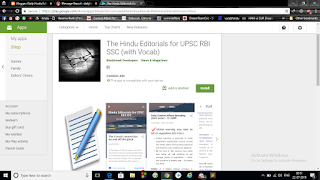GERMAN TANGLE - ON SPD'S COALATION TALKS
The decision of the German Social Democratic Party (SPD) to start talks for another coalition with Chancellor Angela Merkel’s Christian Democratic Union (CDU) will calm nerves across Europe. Since September’s inconclusive parliamentary election, efforts to form a coalition government for the continent’s largest economy have reached nowhere. The SPD, whose vote share came down by 5 percentage points since 2013, initially decided to sit in the opposition and focus on reviving the party. But after months of talks between the CDU and the Green Party to form a government collapsed, sections within the SPD pushed for another coalition bid, which was finally okayed by 56.4% of the delegates in an extraordinary party conference in Bonn last week. Defending the coalition proposal, SPD leader Martin Schulz said working with Ms. Merkel allowed the party to resist right-wing populism in Europe while championing workers’ rights at home through government policies. He said a preliminary blueprint for talks between the parties had already been agreed upon, which includes SPD demands such as a guaranteed pension level and child benefits. However, Mr. Schulz may find it still difficult this time to sell the benefits of the coalition with the pro-business, liberal CDU, to his party and the voters. The challenge before the SPD and the CDU is to formulate a politically appealing yet pragmatic common minimum programme for the new government. It’s not going to be easy given the ideological differences and internal challenges both parties face.
Though the CDU-Christian Social Union combine remained the single largest bloc after the September polls, the parties suffered massive erosion in their combined vote base, a fall of 8.6 percentage points. Some within the CDU have already started questioning the leadership of Ms. Merkel, who has been Chancellor for 12 years. Ms. Merkel’s liberalism has been under attack by the far-right Alternative for Germany, which won a stunning 13% of the vote in the September election. For their part, the Social Democrats are in steep decline. From 40% in 1998, their vote share is now 20%. A coalition government will certainly spare Germany the agony of going to the polls again so soon. A stable government is the need of the hour both for Germany and Europe, at a time when far-right parties are resurgent elsewhere (in Austria, they are part of the government) and the Brexit talks are in a crucial phase. For the SPD, which is in favour of reforming the European Union, joining the German government could also strengthen reform efforts, mainly championed by French President Emmanuel Macron. But these issues can be addressed only if the SPD-CDU/CSU combine is able to arrest the erosion of individual support bases, overcome the internal challenges and provide a stable leadership.

Comments
Post a Comment
share your views